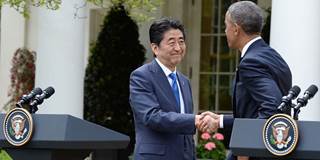Two Lessons for the Next US President
The next US president will have to address citizens' economic grievances without sacrificing the openness and diversity that has long fueled America's success. But domestic concerns cannot overwhelm foreign-policy imperatives like bringing North Korea to heel.

NAGASAKI – Looking out of my window across the harbor of the remarkable city of Nagasaki, Japan, two thoughts of considerable relevance to the next American president come to mind.